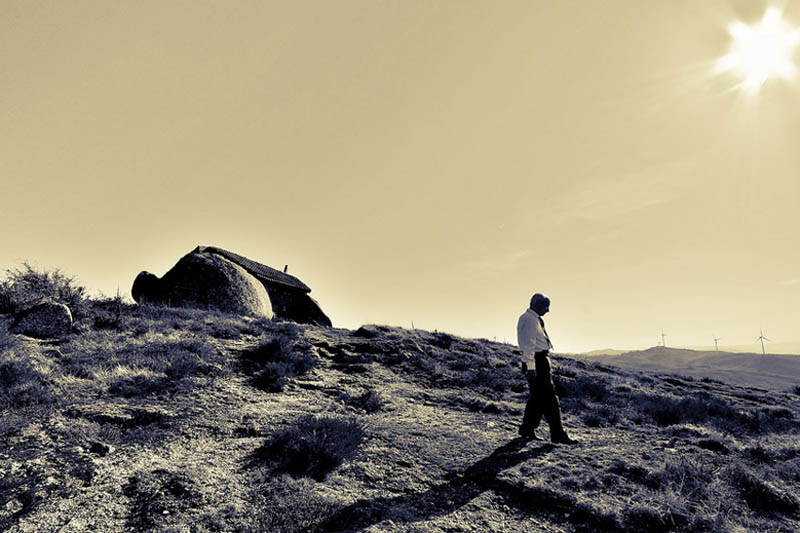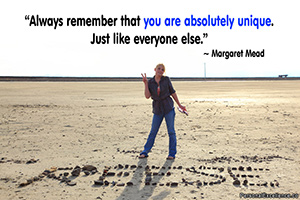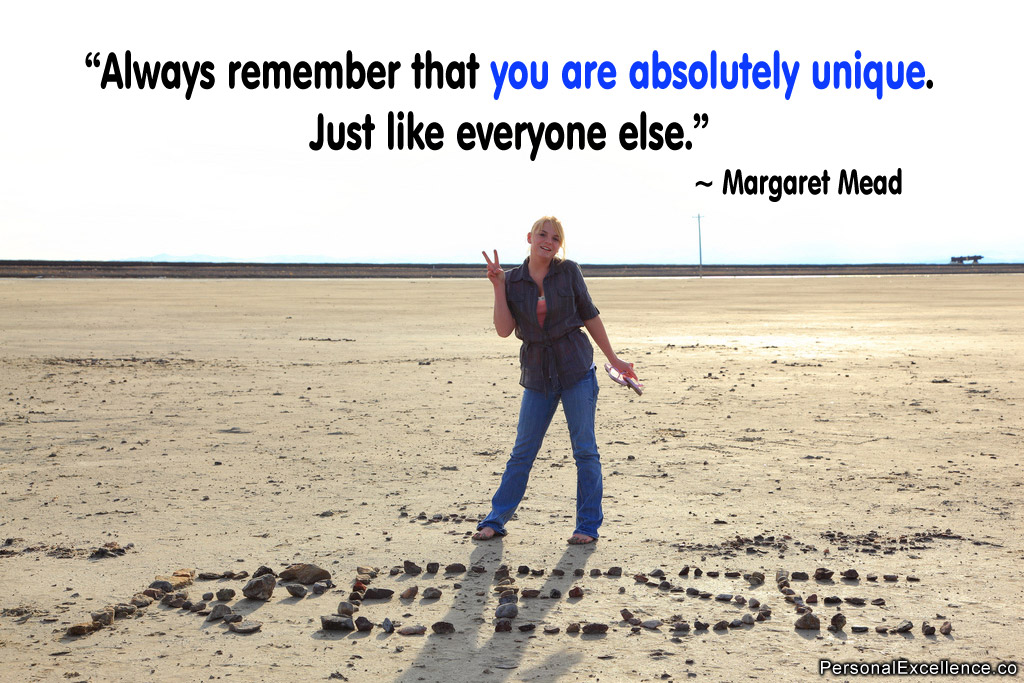During the late Medieval period, around the 15th to 17th century, a weird psychiatric disorder swept through Europe. Many people believed that they were made of glass and were likely to shatter with the slightest contact. This order was later named “The Glass Delusion” and was recorded in the research journal History of Psychiatry.

(Image)
Such a belief meant that people took great lengths to change their lifestyle habits, adjust their behaviors, and even avoid human contact so that they won’t get “shattered.”
For example, a 1561 medical account describes a patient “who had to relieve himself standing up, fearing that if he sat down his buttocks would shatter. This man constantly applied a small cushion to his buttocks, even when standing.” Another reported suffer was the French king, King Charles VI. He refused to let anyone touch him and wore reinforced clothing to protect himself from “shattering”!

Charles VI, King of France, who suffered from the glass delusion (Image)
Most of you would probably find this glass belief stupid since we obviously know that humans aren’t made of glass. After all, we are in contact with people every day — from brushing shoulders to shaking hands to hugging — and we don’t see anyone exploding into pieces! It would seem silly that people would modify their life over such an irrational fear.
Yet, this belief was very real to the European people then. While we know the glass belief is false today, have you wondered if you are carrying false and self-limiting beliefs, hence preventing you from living a great life?
Consider these seemingly benign statements we say on a daily basis:
- “I can’t tell the truth because I may get judged.”
- “I don’t want to get close to this person in case my heart gets broken.”
- “I don’t want to ask for what I want because, what if I get rejected?”
- “I can’t trust people because I’ve been betrayed before.”
- “I can’t pursue my dreams because I don’t know what I’d do if I fail.”
- “I can’t do X because of Y.”
The only difference between us and the Medieval Europeans is that their belief was centered around physical contact, while our beliefs are centered around our emotions, relationships, and goals. Deep down, we’re afraid that once our emotions get hurt, once we experience a heartbreak, or once we face a setback… we’ll shatter and die.
These beliefs are no less irrational than the Medieval European’s glass belief and they are preventing you from living your best life. Here are seven limiting beliefs to remove from your life right away.
Limiting Belief #1: “I can’t be my real self or I’ll be judged.”

(Image)
I often watch videos of inspiring and successful people (such as Oprah Winfrey and Ellen DeGeneres; this was before news of Ellen’s toxic workplace came to light) on YouTube because I get to learn from them and their wisdom. I noticed that no matter how inspiring the person is, there would always be detractors trying to tear him/her down.
For example, with Oprah’s videos, there are detractors calling her “a fat hag,” “an overweight, money-grubbing whore,” and “a black racist.” Sometimes, people will criticize that she “talks too much and needs to shut up.” Detractors of Ellen usually describe her as a “homo,” a “disgusting gay,” and an “evil lesbian who violates Jesus’ teachings, destroys the sanctity of marriage, and is going to hell.” (Ellen is lesbian and married to Portia de Rossi.)
When I read these comments, I’d think, Wow, I’m so glad that they don’t bother themselves with such negativity. Because if they did, they wouldn’t have accomplished so much or helped so many people!”
Seeing such comments helps me realize that people are always going to judge no matter who you are and what you do. You can’t please everyone because everyone is different, with vastly different views and beliefs. It’s more important that you work on being yourself and owning your true self — the right people who resonate with you will then show up and come your way.
Embrace these beliefs instead:
- “It is not my job to please people in life.”
- “Be me. There’ll never be anyone else like me.”
Further reading:
How to deal with unconstructive people:
Limiting Belief #2: “I can’t fall in love or I’ll get my heart broken.”

(Image)
I used to carry this belief subconsciously. While I had been open to being in a relationship since young, subconsciously I was afraid to love because I didn’t want to be rejected and have my heart broken. So even though I would verbally say that I want to be in a relationship, I never opened my heart to others.
Such a belief prevented me from finding love. Funnily, despite having such a belief, I still experienced heartbreaks anyway — once in my teens, and another time in my 20s. While each heartbreak was painful, they made me stronger and wiser. From those incidents, I learned more about myself and how to attract true love — eventually finding my soulmate.
Now, if I had closed myself off, my husband and I would never have gotten together; I would also not have found the love of my life. This would have been my greatest regret — except that I wouldn’t get to regret it because I wouldn’t even know what I had missed!
To find true love, you need to put yourself out there and allow yourself to be vulnerable. While you may get hurt in the process, it’s part and parcel of any love journey. Know that it’s not possible to form a true connection without first being vulnerable. To avoid love out of fear of being hurt will only lead to a fear-based, loveless life filled with “what if’s, regrets, and “I wish I did xxx” when you grow older.
Embrace these beliefs instead:
- “I love freely because it is part of being human.”
- “It is by opening my heart that I will attract the right kind of love into my life.”
- “Heartbreaks help me to learn more about myself and love; they move me closer towards attracting the right person into my life.”
Further reading:
- How To Move On From a Heartbreak (five-part series)
- How To Find Your Soulmate in Life (seven-part series)
- ‘Online Dating and Arranged Dating Are For Desperate People.’ 5 Myths Keeping You From Finding Love
Limiting Belief #3: “I can’t ask for what I want because I may get rejected.”

(Image)
I remember when I started giving speeches in the first year of my business. To get the word out about my service, I reached out to different organizations and pitched to them. I would cold call, email, and at times even do a cold walk-in to try my luck! I lost count of the number of organizations I contacted, but it was a lot — at least 70.
Most never responded. The ones I cold-called or cold-contacted would brush me aside and tell me to “email instead,” which was synonymous with “Sorry I’m not interested, and I’m just asking you to email so that you can stop bugging me.” For every outreach attempt, I faced a >95% chance of rejection, either via non-response or a flat rejection.
It’s good that I never let these rejections stop me because I eventually nailed a long-running training contract with a very reputable career portal. How? Through a cold email which I thought wouldn’t get me a response, but I still sent anyway. I became their exclusive training partner for the next 18 months and ended the contract in 2011 because I wanted to focus on developing my business online.
In life, people face rejection all the time. Rather than avoid rejection, learn to handle it. Rejection is merely a process that lets you know that you’re poking in the wrong direction so that you can adjust your strategy and move in the right direction. By shying away from asking because you don’t want to face rejection, you’ll only rob yourself of opportunities to get what you want. The universe wants to give you what you want — create the chance for it to do so. :)
Embrace these beliefs instead:
- “Rejection is part and parcel of life. Every ‘no’ will lead me closer to a ‘yes.'”
- “I need to first ask in order to receive.”
Limiting Belief #4: “I can’t trust people lest they betray my trust.”
When I was in primary school, I found out that my then-best friend spoke ill about me the whole time we were “best friends,” even though she would always be saccharine sweet before me. As an inferior twelve-year-old, this incident left me feeling worse about myself.

(Image)
Even though this experience made me more guarded, I realized — after embarking on my personal growth — that being guarded doesn’t help me to forge meaningful connections. While it may prevent me from getting hurt, it limits me from forming deep friendships.
This is why I don’t hold back on trusting people — in fact, quite the opposite. Whenever I meet a new person, I always give him/her my full trust unless the person violates the trust. This is how I’m able to make so many great friends and build so many amazing connections. This is also why I’ve had so many amazing readers host me during my world travels in Europe, the United States, and South Africa — even though we had never met in person before that! Because I share my life stories openly on PE, it has allowed them to form a connection with me and trust me enough to ask me to stay with them during my travels. Meeting up in person then allowed us to build a deeper connection.
Betrayal never feels good but that doesn’t mean you should close yourself off from others. Just because there are a few bad eggs doesn’t mean you should stop trusting others. Doing so will keep you from meeting amazing people and make you constantly live in fear.
So, trust freely while being smart about how you handle toxic people. Cut off the bad eggs while opening yourself to receive new people into your life.
Embrace these beliefs instead:
- “Everyone is deserving of my trust unless otherwise disproved.”
- “Without trust, I can’t form a meaningful relationship with anyone.”
Further reading:
- The Secret To Meaningful Social Relationships
- Are You Focusing On the Black Dot?
- Backstabber Guide: 6 Tips to Handle Backstabbers
- How To Deal With Dishonest People
Limiting Belief #5: “I can’t pursue my dreams because I may fail.”

(Image)
Before I started pursuing my dreams, there was a brief moment when I worried about failing. What if I fail? I thought. What would happen to my life? Would I be deemed a failure, a loser, a good-for-nothing?
It didn’t take long before I realized that my fear was redundant. Firstly, by properly strategizing, planning, and taking due action, there was no reason why I would fail. Secondly, even if I were to “fail” (as defined by not generating income before my savings run out), I could always return to the corporate world, get more savings, and then return to pursue my dreams after a year or two. I could simply just do this over and over until I succeed.
This was a big aha because I was able to pursue my dreams without fear after that. Things took off after a few months and I never had to explore the option of returning to the corporate world. Even if things didn’t work out, I would have simply returned to work and quit to pursue my dreams after a couple of years.
Failure is over-glorified in today’s world. People fail all the time — there’s no need to make a big hoo-ha out of it. What’s more important is the actions you take when things don’t go your way. How can you learn from your failures? How can you turn your failures into success? These are the questions to ask yourself as you pursue your dreams.
Embrace these beliefs instead:
- “My dreams are mine for the taking.”
- “Whatever I can conceive, I can achieve. It’s up to me to take the steps to make things happen.”
Further reading:
- Can Everyone Be Successful in Starting Their Business?
- Successful Businesses Interview Series
- Why Do Some People Have Innate Talent But Not Others? It’s Not Fair!
Limiting Belief #6: “I don’t need to be successful so I’m not going to strive for success.”

(Image)
Uh-oh, the self-intellect’s trap. I carry a variation of this belief sometimes, such as “I don’t need a lot of money to live a great life, so I’m not going to strive for riches,” and have to catch and correct myself when that happens.
The danger with this belief is that it creates this intellectual, rational, even convincing self-justification on why you shouldn’t be successful (or why you aren’t successful right now), when actually, it’s in your cards to be successful, wealth, abundant, or whatever you want to be. Believe it or not, the only person who can break this trap is you yourself because the ego finds unlimited ways to justify its state of being.
Breaking such limiting beliefs was exactly what I taught participants in my passive income course. I taught them to identify their limiting money beliefs because you need good money beliefs to succeed in your financial goals. While most people think, “Why should I be rich?” and “I don’t know if I can be rich,” the question I asked the class was, “Why shouldn’t we be rich?”
After I raised the question, one of the participants Sulthana realized that her baseline belief towards money was negative when it shouldn’t be so. Turns out that growing up, she was never surrounded by many wealthy people, so her baseline belief was always, “How am I supposed to know if I’m meant to be rich?” Upon hearing my question, she thought, “Yes that’s true — why shouldn’t we be rich? Even if someone is born in a poor country, the person can always find ways to earn money.” From there, she was able to switch her money beliefs to abundance beliefs.
You don’t need a reason to achieve success because you’re meant for success. But supposed you do need one — what would you do if you are hugely successful, have a billion dollars, and are well-known? How can you put this success, money, and fame to the highest use? Perhaps this answer is the answer you need to strive for your highest potential.
Embrace these beliefs instead:
- “I succeed simply because I can.”
- “By being successful, I have more resources to achieve my highest goals and dreams and to support the highest good of mankind.”
Further reading:
Limiting Belief #7: “It’s too late to pursue my dreams.”

(Image)
Everyone knows Colonel Sanders, the founder of Kentucky Fried Chicken (KFC). Did you know that before Sanders became a world-famous Colonel, he was a sixth-grade dropout, a farmhand, an army mule-tender, a locomotive fireman, a railroad worker, an aspiring lawyer, an insurance salesman, a ferryboat entrepreneur, a tire salesman, an amateur obstetrician, an (unsuccessful) political candidate, a gas station operator, a motel operator and finally, a restaurateur?
It was between the ages of 48 and 49 that Sanders finalized his now-famous “Original Recipe” for KFC with 11 herbs and spices. At the age of 65 in 1955, Sanders traveled across the United States, visiting from restaurant to restaurant, knocking from door to door, and cooking batches of chicken for the restaurant owners to convince them to franchise his chicken.
His efforts paid off because by 1963 there were 600 KFC restaurants, making the company the largest fast food operation in the U.S.! In 1964 at the age of 74, Sanders sold the company to investors for US$2 million (about US$15 million today), a lifetime salary, and the agreement that he’d be the company’s quality controller and trademark. Today, KFC has 18,875 outlets in 118 countries and territories — making it the second largest fast food restaurant chain in the world, after McDonald’s.[1][2][3]
I don’t care much about KFC as it’s unhealthy but Sanders’ story is both inspiring and chocked full of lessons. There’s much we can learn from him:
- Even in his late 40s when most people would just prepare to wind down in life, Sanders was busy perfecting his secret recipe for chicken.
- At a ripe old age of 65, he was traveling across U.S. and hustling for people to franchise his chicken. He must have faced tons of rejections along the way, but did he let it stop him? No. (Refer to Limiting Belief #3 above on rejections.)
- Despite being a jack of all trades and having succeeded in virtually nothing prior to his 40s (relative to society’s standards), Sanders did not let this stop him from making good of his life.
If you often say that it is too late to pursue your dreams, recognize that age isn’t the real limiting factor here — your belief that it is a limiting factor is the limiting factor. Forget the standard societal definition where one needs to be at a certain place in life at a certain age to be considered successful. Your life path is bigger than such predefined tracks. Create your own life path and make it happen.
Embrace these beliefs instead:
- “It’s never too late to pursue anything. What’s more important is that I take action now.”
- “Age is just a number. My current age is just a reflection of the number of years I’ve been alive, but not a reflection of my unlimited power as a being.”
Further reading:
- Lost in Life? Here’s Some Inspiration [Infographic]
- Success Has No Age Limit [Infographic]
- How Do I Prepare For My Comeback in Life?
- How To Overcome Fear Of Loss And Pursue Your Dreams
What are Your Self-Limiting Beliefs?
Do you carry any limiting beliefs? How are you going to turn them around?







 I hope you find my content helpful. Join my community of 65,000 readers and get my latest articles delivered to your inbox. Your email is safe and I never send spam.
I hope you find my content helpful. Join my community of 65,000 readers and get my latest articles delivered to your inbox. Your email is safe and I never send spam.
One of my self-limiting belief right now is that my family background affects how I interact with other people. As you’ve said in your other article/s, I am the average of the five people I am with most of the time. For the most part, I feel that I am heavily influenced by how my parents are acting and speaking in our house. I feel that they are not being real and not being a role model for me as to how I should interact and connect with other people. In effect, I feel that they have influenced me to not be real or be my true self; that I should just be a people pleaser, as what I observed in them, and just smile all the time just to appear friendly and nice but not being true to who I am — the person that wants to reflect and be true to his values and ideas in words, deeds, and in my relationships.
Right now, I am aware of that influence in me because I recently had a job interview. I can still remember how two of the panel interviewers almost made fun of me as I slowly become tired and my answers seemed to be lacking of enthusiasm compared from the point when the interview started. When I got tired in the interview (after 2 hours of interview), I felt my enthusiasm was just made up and my smile was just plastered so that I would made a good impression. I even felt that my integrity was questioned by the interviewers because of my answers, the way I answered and by my “tired” facial expression. As I look back on it, I realized that I wasn’t being real right from the start, that I just made a facade just to pass the interview and get the job I applied for. This is just an example in my life but I could also look back in some social situations that I just tried to please other people just to make friends even if it cost my integrity or my “being real” before them.
The experience taught me a lot about myself. Thanks to this article, Celes, I get to notice another dimension of my recent experience and try to change the way I am by becoming real and true to myself. Right now, I do not want to continue blaming other people for who I am because I feel more responsible now as to how I should be with my interaction with people. I now feel that I have the ability to be real and be comfortable with myself because I do not want to be a people-pleaser anymore and sacrifice my integrity in the process. Being real with people maybe difficult for me at this time — as I the experience that taught me to be real was just recent — but I believe that I could be real in front of people as I start being real one person at a time (and hopefully find a good job so that I could achieve my dreams! :D)
Celes, I’ve been reading your articles for the last few days and I want to thank you for sharing the knowledge you have with us, common mortals :D… because we are all often clueless when life brings us new challenges. Your articles really helped me to dig deeper in my soul and mind and I wish you all the luck in the world so you can progress even more in your personal life and your career and help more people to achieve personal excellence ;) :) Greetings from Bosnia
I’d never heard of the Glass Delusion before. It does sound very strange nowadays but I know how the brain can make you believe things that aren’t true.
I had a discussion on Facebook earlier today about how a lot of us have a limiting belief about accepting free things. If someone offers to give us something for free we can be wary because we have beliefs like, “Nothing comes for free”, “There’s always a catch” and “There’s no such thing as a free lunch”. I think that mindset can hold us back from opportunities sometimes.
I have similar beliefs to #1, 2 and 3, especially about getting rejected. Thanks for the new belief suggestions. I’ve been looking at my beliefs since I started studying the Law Of Attraction.
I also like the belief that success has no age limit. :)
I’ve experienced that about free things a lot. Like when giving out free food to people – they just don’t get it :) To be fair, I used to be like that myself, always politely declining when someone wanted to buy me something. Now I accept those offers with gratitude if I actually do want what they’re offering :)
I thought about it this way: if I were in their place, I would be happy if I could offer someone something. So why should I decline the offers from others?
If you’re interested in delusions, Capgras Delusion is pretty odd – it’s the feeling that your loved ones have been replaced by impostors. (because the connection between face recognition and emotional reactions has been lost)
Yeah, I try to accept free things too. I like it when you get free samples of food, like when I was a child they used to give you free cheese at my local supermarket . I think it tends to be easier for some of us to accept smaller free items than bigger items. It’s good to be open to things, although sometimes there might be an ulterior motive behind something, there won’t always be.
That’s a good way of thinking about it. :)
I’ve never heard of the Capgras Delusion either. That sounds like it’s very frightening.
I definitely have the belief #6. To the point I no longer try to find a boyfriend (“pfff what for? I’m okay by myself”), be successful (“if people’s worth is not measured by their achievements, why would I bother to achieve anything? Besides, I have nothing good to offer”) and in general I kind of believe striving for anything in life is too much pain in the butt, since I’m perfectly fine in a place I’m in right now.
Your article gave me some nice starting point… ’cause damn, I AM, in fact, unhappy, but on the other hand I still have no will to fight. Gotta go and rethink some things..
It’s definitely possible to be both happy where you are and still strive for more. As long as you don’t become too fixated on what you’re trying to achieve. Also, I like the quote that says “When you’re looking for the love of your life, stop. They will be waiting for you when you start doing the things you love” ;)
Thanks for this Celes! Such a great reminder to myself really, especially point #5 that resonates in me deeply.
That aside, #1 reminds me of a cheeky quote by Dr. Seuss — ‘There’s no one alive that is Youer than You!’. Love it. :)
great article!! #1 – #4 are something to work on. thanks for sharing. i going to write this out and stick it on my mirror and my front door so i can be reminded to have proper mindset before i start my day:):):) looking forward to read more!!
Hi Victor, writing them out and sticking them on a surface is an excellent way to reinforce the new positive beliefs! :D I love your enthusiasm and it sounds like you’re doing very well in your awareness building and personal growth; please keep that going!
thank you for the encouragement Celes!! it amazing how wonder this can effect my whole day:) thanks again
Nice article. #5 and #6 are the most applicable to me, with a little bit of #1. I think the most remarkable thing is how for many these beliefs are very sub-conscious and people don’t even realize it is a problem. Right now I’m focusing on #5, fear of failure, and my strategy is to map out the steps I need to take and then research them fully.
Hi Laurel, you’re 100% spot on. The biggest issue is that most of these believes are subconscious and people don’t know they have them / don’t even think they have them, hence causing these beliefs to perpetuate. That’s why I usually focus on story-telling for my writings, because that’s the best way for people to relate and realize that, “Hey, I think that” or “Hey, I do that too!!”
It’s fantastic that you’re self-examining and aware of the beliefs that relate to you. For #5, do check out the successful business interview series (as linked under the point) where you may draw lessons from others who have succeeded in pursuing their dreams. I think you are definitely on the right path, to map out the steps you need to take. I’m excited to see how things work out for you. :D
Thank you for this article from Germany! :-)
Thank you for your kind comment Aljoscha! :)
Nice article Celes, it’s good to see you back to writing long articles like this on your blog again. There are some good comparisons here. I’d never heard of the glass delusion before, but I’d agree about it being on par with many limiting beliefs people still hold onto. To see what that could look like if it were real though, do a search on YouTube for a music video by Leftfield called Afrika Shox. It’s quite old now, but a very impressive video. Actually, I just found it here – http://www.youtube.com/watch?v=Hi0erY0WG6A
I’m now beginning to wonder if the director Chris Cunningham actually knew about that glass delusion when he made the video.
To be honest, my only problem these days with limiting beliefs, is trying to figure out how to deal with people who have them. If I tell anyone they have a limiting belief, their response will always be something along the lines of me not understanding them.
an excellent article, thank you for it. There’s alot more to write on how to have people embrace the change in their mindset for a breakthrough. Can’t wait to read more from you. Have a blessed day Celest!
Wow, absolutely loved the way you compared self-limiting beliefs to the Glass Delusion. That sucked me into the post and had me nodding the whole time I was reading.
I’ve got several of my own limiting beliefs that I’m slowly eliminating (or at least ignoring to a extent.) #6 was definitely one of my biggest limits that I gave myself. To an extent, I’ve still got pieces of that left.
Hi Vincent, you tell me! #6 is also a limiting belief of mine like I shared in the post. I think one of the key ways to bust that is to project yourself into that state and ask yourself, “What’s the most meaningful way to use this success/money when I have it?” This will be the added driver to make things happen and realize you do want that.
Commenting for this post is closed.